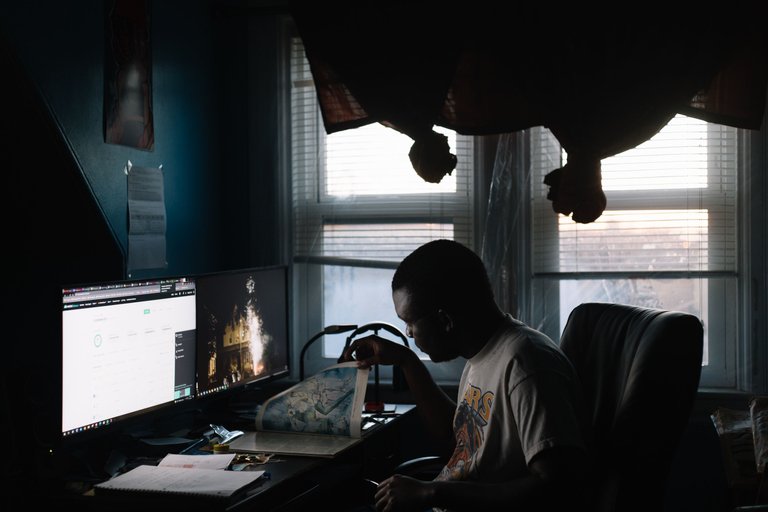
Founders' Fridaze
I just sent our core group a funny image. I'll share it here as well, a graphic found by chance on Pinterest. It lists four reasons why businesses fail. For someone like me, forming a quasi-content business with a token at present, it doesn't cost much to pay attention. I consider this a warm-up for when I start my media publishing house.
The four reasons why businesses fail:
- 42% of small businesses fail because there's no market for their product or service
- 29% of small businesses ran out of cash in their first year of running a business
- 23% of small businesses fail because they don't have the right team
- 14% of small businesses fail because they ignore their customers
When I reflect on these reasons, I see pitfalls that various projects in the headlines and ones in which I participated all fell into at one point. In this regard, I think it's worth looking at what obstacles we could anticipate and avoid.

Avoiding The Pitfalls
I have experience related to most of these reasons. Let's take a look at what each reason for business failure brings to the surface.
There's no market for the product or service. I have a general wariness of projects that make claims of creating a product from scratch. I met a founder from Stanford. His name is Vince. His current project is a "decentralized trust network." It's a novel idea with merit, because Stanford has an excellent course that he spoke about, Startup Garage. I got the privilege of a firsthand explanation and the document.
People have ideas but they won't take the risk of starting a business out of fear. Fear of many things, including the unknown. The problem is, to start a successful business, a few things must be known. He called it business intelligence. Does your product have an existing market or competitors? How many people could be in the population of your users? What needs do you serve with your product or service? Crypto founders I know always want to make the next Telegram trading bot. But I ask, how many people in crypto use them? That's already a small portion of a smaller demographic. If these products last until 90% of the world uses crypto, then maybe, it shows promise. Yet, when only 1 in 5 Americans owns crypto as of 2022, expending resources for that sort of endeavor feels misled by personal assumption.
The business ran out of cash in their first year of running. I was part of an NFT project with some interesting art. Yet, it couldn't stand the test of time, maybe in part for this reason as much as the third- the right team wasn't there. Regardless, this project suffered from poor accounting and treasury management. I mean, taking any portion of the war chest to reinvest into altcoins is more than risk tolerant. It's foolhardy. The project then exposed $30,000 dollars to a 70-80% drawdown in some crypto's value, reducing the runway to about five or six thousand dollars.
The one thing I recognize, many don't seem to like since it's slow and simple: invest operating income into regular yields. Why, might you ask? Try my thought experiment:
- Allocation for development work on the whitepaper is 2% of token supply
- Right after the presale and public sale, the Fully Diluted Value (FDV) of the total token supply is $150,000.
- 2% of $150,000 is $3,000
- Rather than reinvest in risky crypto, the team sends the capital to NEXO, MKR, and gets 10% APY
- 1 year of 10% returns on $3,000 is $300.
- $300 in returns over 12 months is $250, each month of additional income, generated from the development's stake alone.
In short, the above points highlight that rather than empty the pot in one year (or less), projects could smartly take a portion of their proceeds from launch and plant a seed so the money grows and comes back. This way, they have operating revenue, regardless of costs. You'd be surprised how many teams fight over money and the fact that they don't have anymore coming in. That's the current situation at $TURBO.
The business fails because they don't have the right team. Many times you find disagreeable online because everyone has different perspectives and situations. The volatile cocktail of teams intensifies when you compound it with money and contributions. Team members quit with oversized severances, some even sneak in the backdoor to empty the vault as in the case with the $15 million issue in $PEPE last year, 2023. On another hand, some people just do not jive well. I could say some people still within projects I supported simply hunger for power, control and achievements in their name. They embody vainglory. Still, in other teams, you have those who are approachable, but commit no work to the effort. In short, you find social loafers everywhere. Part of my task as a founder is connecting people to the same effort and concentrating our time, the most precious resource.
The small business fails because they ignore their customers. In line with lacking business intelligence and mismanagement from the team, sometimes projects don't pay attention to the people. You end up with fractured communities, like the case with $TURBO. In the face of so little effort from the Discord faction , the Telegram group created their own Twitter account and updates their socials independently. The real ignorance of customers' potential was seen in the strategic decision by those in control at Discord. They chose to ignore the significance of their token as a currency for NFT's on Manifold. They might even have a recurring revenue stream had they focused on their unique selling point, gearing it towards customers.

Making Note of Mistakes to Avoid
I'm not saying there won't be pitfalls in your projects. Mistakes happen. Still, there's an opportunity to make mistakes, but one must avoid betrayal. A mistake is a disconnect between effort and execution. For example, I dropped the stack of books I carried. A betrayal involves a disconnect between communication and expectations, often at the expense of trust. Instead, I stole an expensive-looking book from the stack. I won't make any promises of things other than that I will put forth my best effort and volunteer my spare time. Let it be known I am also working in a manner to avoid these snags for most businesses.
That's the founder I am.